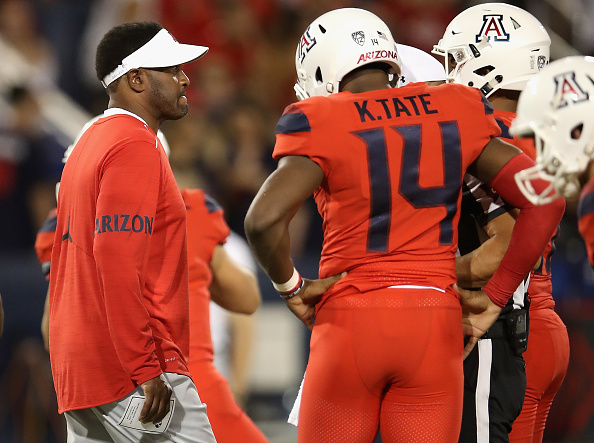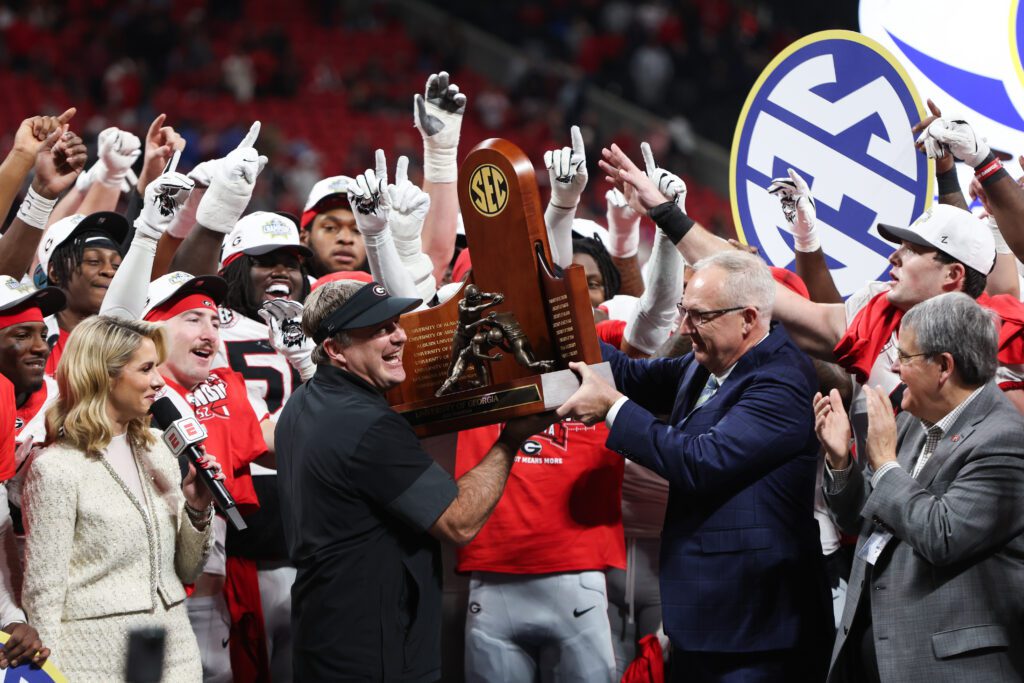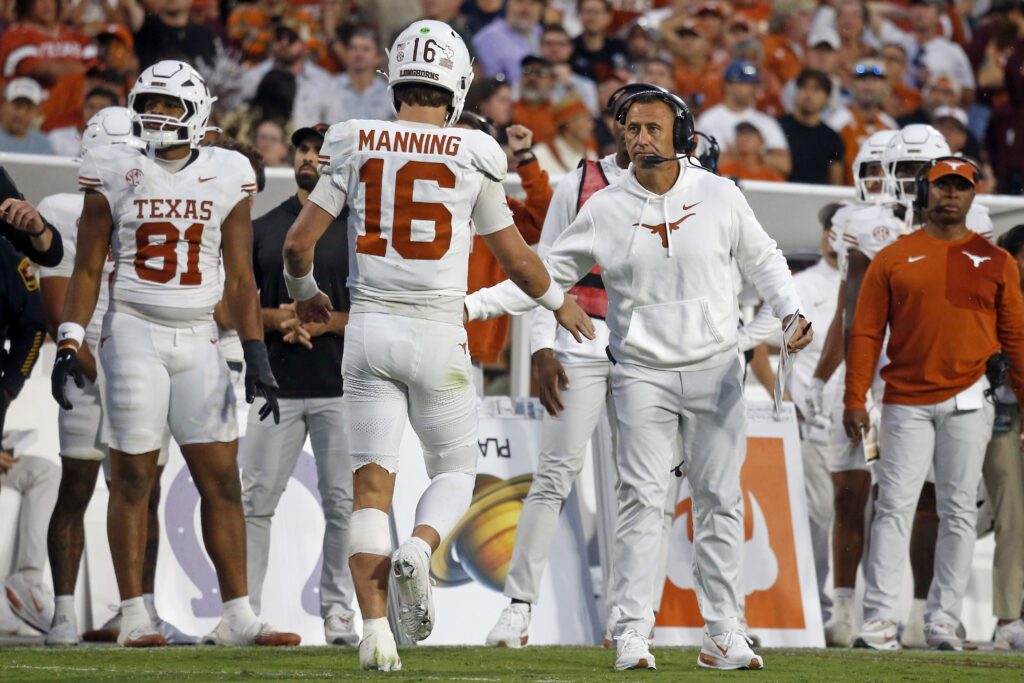Sports radio and analysts have spent a lot of time this week talking about the struggles of Heisman candidate and Arizona quarterback Khalil Tate in Arizona’s 28-23 loss to BYU. Similar time has been spent discussing the very same struggles this past week with Texas quarterback Sam Ehlinger. Speculations have been pretty consistent for the most part from these analysts, as it is almost a forlorn conclusion that these struggles have been “shaking the rust off” in the first game of the season.
I beg to differ. These players weren’t coached right.
Why Khalil Tate and Sam Ehlinger struggled Week 1
Who is Khalil Tate?
Khalil Tate was a backup quarterback at the start of last season, expected to possibly convert to wide receiver. Head coach Rich Rodriguez thought he had his man in Brandon Dawkins, a junior dual threat quarterback with a strong arm. Dawkins went down with an ankle injury week five, and Tate stepped in. He was electrifying.
Arizona QB Khalil Tate (@KhalilDTN) Highlights
Tate is a legit dual-threat weapon who can carry a team when needed. Despite not being the starting QB the entire 2017 season, he still put up insane numbers. 2018 will be a HUGE year for Tate
Full Video ?: https://t.co/5q5AowIgGW pic.twitter.com/YYiOOGxjpz
— JustBombsProductions (@JBP_Official) June 30, 2018
Tate ended up throwing for 1591 yards and 14 scores. His legs were just as strong, gaining 1411 yards and 12 more touchdowns. Tate became a playmaker, and set the FBS record for most rushing yards by a quarterback in a single game (327) in the very same game Dawkins went down hurt.
To summarize, Tate is a dual-threat quarterback with his legs being a critical element to his game.
Who is Sam Ehlinger?
Sam Ehlinger stepped into action last season in game two when starting quarterback Shane Buchelle went down against San Jose State. He played well in relief, eventually handing the starting job back over once Buchelle was healthy. However, Buchelle struggled with his health the rest of the season, and Ehlinger got a lot of extra playing time. He went toe to toe with Sam Darnold in week three in the game with USC.
True freshman QB Sam Ehlinger finished with 380 passing yards, 108 rushing yards and this bulldozing run. #Hookempic.twitter.com/Lb65dj2GCm
— Hookem Football (@hornsfootball) October 8, 2017
He threw for 1915 yards and 11 touchdowns, and added to the ground with two 100 yard rushing performances and 2 more scores.
To summarize, Ehlinger is a dual-threat quarterback, with his legs being a critical element to his game.
What Arizona did wrong
Upon reviewing the broadcast of the Arizona BYU game, the commentators spoke of the Arizona coaching staff and their preparation for the game. “They want [Tate] to be a quarterback first, not an athletic quarterback,” the sideline reporter Chris Jones said. It was clear throughout the game that head coach Kevin Sumlin wanted him to stay in the pocket.
Corbin Kaufusi spied Khalil Tate for most of the night. Khalil had 14 yards rushing
Some think that Sumlin/Mazzone instilled in Tate to throw in these situations rather than run
Some think Corbin Kaufusi is just that intimidating
BYU forced UofA into a FG attempt#BCF #BYU pic.twitter.com/HvT7CbRWba
— Benjamin Criddle (@CriddleBenjamin) September 2, 2018
Tate looked uncomfortable. He kept looking for options downfield when he could have been gashing the defense for humongous gains. He ended with 197 yards passing and a touchdown and just 14 yards rushing. He didn’t run for under 25 yards in a game all of last season!
What Texas did wrong
While watching the game, I didn’t see Ehlinger try to run the football either. He was standing in the pocket, sometimes for far too long, trying to make a play happen down field.
2ème INT de QB Sam Ehlinger et les Longhorns vont encore s’incliner contre les Terrapins de Maryland. Incroyable ! On parie que QB Shane Buechele débutera contre USC dans une semaine ? Grosse pression sur le coach Tom Herman.
Maryland 34, Texas 29pic.twitter.com/BfOxAU4uVn— TBP College Football (@thebluepennant) September 1, 2018
Take this play for example. He has a two man rush with the defensive tackle playing spy on him. He looks downfield, rolls to his right and then tries to force a throw on the sideline. He could have picked up a first down running for it, getting a solid block from the center on the spy. Texas had time and advantageous field position.
Why are coaches making these mistakes?
There is nothing sexier to an NFL scout then an NFL caliber quarterback. The NFL doesn’t want these guys who can’t stand in the pocket and make throws, or the “athletic quarterback” so to speak. These hot seat coaches realize that to keep their jobs, there is more to college football then just winning football games. Sure, winning games is great. However, with Alabama’s and Clemson’s running around, the chances at actually competing for a Championship is slim.
Coaches can keep their jobs by turning NFL talent over to the league. If they can turn quarterbacks over, even better.
College coaches are suppose to take the talent they have and put a concerted team effort into playing everyone to their strengths. Taking athletic quarterbacks and trying to make them pro quarterbacks will not play these players to their strengths, nor will it turn them into pro-ready quarterbacks.
This hurts college football. Not only do we miss out in seeing players reach their full potential as great college level quarterbacks, we miss out on seeing college teams truly play their level of football. That’s what college football is, amateur football. Don’t try to make it a professional level.
Want to get in the discussion? Shoot me a tweet on Twitter @lwosjohnv, or an email at [email protected].



